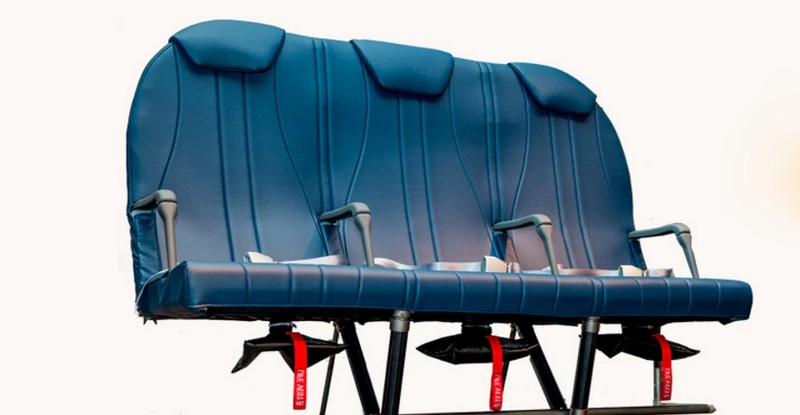Expliseat sees a market for economy class seats with a 27-inch pitch among airlines seeking extra space to install premium class seats at the front of the cabin.
But taller passengers need not panic just yet as no such formal requests from airlines have come forward so far. Besides which, the French manufacturer makes the bold claim that even at 27 inches, its product would provide enough extra legroom to avoid sacrificing comfort.
Expliseat chief operating officer Jean-Charles Samuelian tells Runway Girl Network that the manufacturer is “ready to go” with a 27-inch seat should an airline request it. The seat company is not alone; Zodiac Aerospace and Acro are among those that stand at the ready to offer seats pitched at 27 inches if requested, even though 28 inches has been the generally accepted minimum in the past.
The reasons for such a request could include making extra space for galleys and toilets or installing more premium class seats at the front, he says. Naturally, another reason would be to accommodate more seats, such as on A320s that will be re-certified for 189 seats. “Some airlines want a 189-seat A320 and the final solution could be some 27-inch and some 28-inch seats,” says Samuelian, adding that although a 189-seat configuration could be achieved with all seats at a 28-inch pitch, a mixture of 27- and 28-inch seats could also be a possibility.
Before you snort coffee out of your nose at the prospect that airlines might offer a mixture of both – perhaps even offering 28-inch pitched seats for Euro business class (with the middle seat blocked off) and 27-inch pitched seats in economy – consider the fact that British Airways will retain its 29- to 30-inch seat pitch when it reconfigures 95 of its short-haul aircraft with new slim line seats and tablet holders.
This makes Samuelian’s next words even more significant. “Our initial thought was to do a seat that was really slim to allow us to reduce pitch with the same comfort. So a 27- or 28-inch pitch is not a problem for us at all and it will feel like 30 inches.”
Expliseat received EASA certification for its part-titanium, part-composite seat on 1 April. Launch customer Air Méditerranée will begin flying its first Airbus A321 installed with the seats on 8 July (the seats will not be pitched at 27 inches). Expliseat has signed up a total of “more than three” customers wishing to install the seat on A320 aircraft, with the second customer scheduled to take deliveries in early September.
Samuelian declines to disclose the identity of the additional customers but says they are based in Asia, the Middle East and Africa. “They are mainly efficient airlines – low-cost is not a good term because they’re not branded as low-cost. One of them is a high-value airline to its customers,” he says. Expliseat is “in discussions” with some US carriers but has yet to sign one up.
Weighing in at 4kg (9lb) per passenger, Expliseat’s product is one of the lightest on the market, although this comes at a price because of the high cost of titanium. However, the resulting fuel savings – up to $500,000 per narrowbody aircraft – and reduced maintenance costs mean that “payback is really short”, something “every airline understands”, says Samuelian.
Expliseat’s titanium seat is currently on display at the Paris museum of science and engineering, which Samuelian says is “something great for us because it shows the innovations we have been working on”.
The company plans to spend the remainder of 2014 focusing on its core narrowbody market, but Samuelian says it could start looking at developing a titanium seat for widebody aircraft as early as next year, depending on demand from customers.
“We have very good momentum – we have signed contracts and deliveries are going well. These are exciting times for us,” he says.









